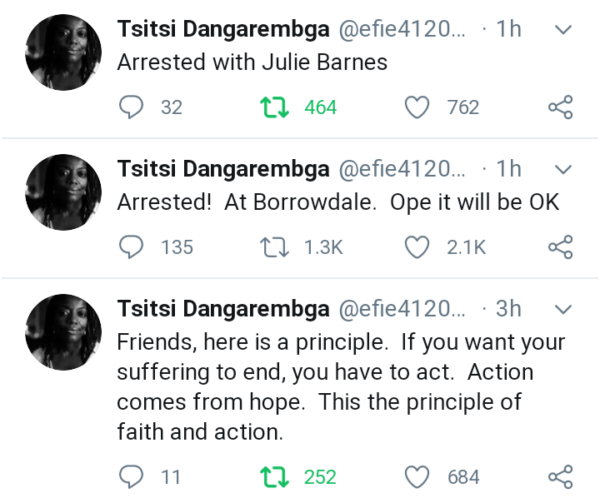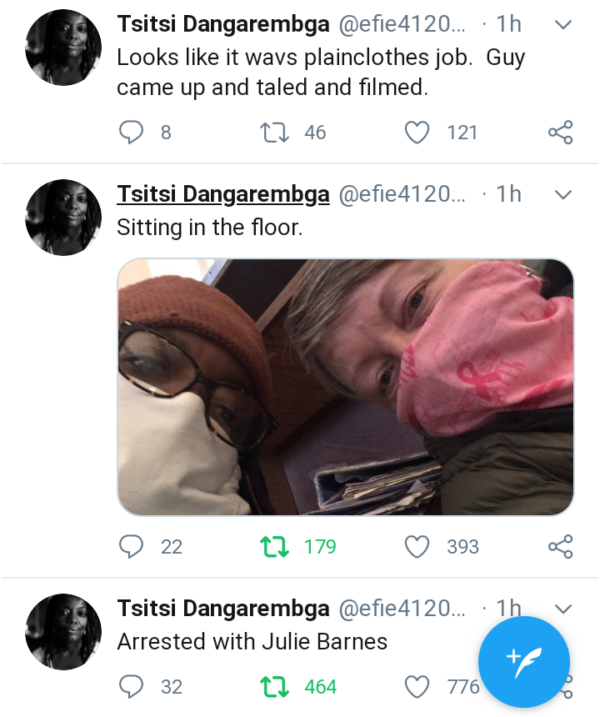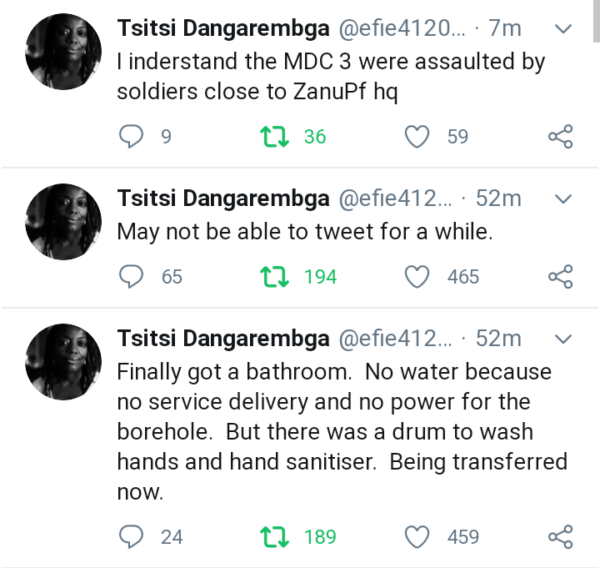
Days after Zimbabwean novelist Tsitsi Dangarembga was longlisted for the Booker Prize, she was arrested while protesting. The arrest took place in the early hours of Friday, 31 July by the Zimbabwean Republic Police (ZRP).
Earlier today, Zimbabwean news outlet TheFeedZW shared a video of her leaving jail and subsequently fielding questions from reporters.
She said she was happy “to be out in the fresh air.” She also reiterated her stance to continue fighting for the good of her country: “I feel that all Zimbabweans want a better life for all Zimbabweans and the people who live here. And I think that that is a very right motive to have. It’s a good thing to live by and to work for.”
Watch the videos.
View this post on Instagram
The protests, according to The Guardian and various eyewitness reports on social media, is the result of a build up of tensions arising from escalating social and economic inequalities and allegations of corruption against President Emmerson Mnangagwa’s government.
Dangarembga was arrested in Borrowdale for carrying a placard demanding the release of investigative journalist Hopewell Chin’ono, who, according to the BBC, had earlier been arrested by the government of Emmerson for exposing an alleged million-dollar coronavirus intervention scandal.
Tsitsi tweeted the news of her arrest and kept updates on her situation on Twitter.



Dangaremgba’s arrest sparked widespread social media outrage, especially from the literary community with organizations like Ake Festival, the Booker Prize Foundation, Tsitsi’s publisher Faber & Faber, Abantu, English Pen, and others calling for her immediate release.
Meanwhile, in a press statement released by the ZRP, the police denied accusations of excessive force against the demonstrators. The police claimed that it had arrested only five protesters, including Dagaremgba, in Harare, Bulowayo and Chegutu, for “trying to incite the public to engage in illegal demonstrations while carrying placards written various political messages meant to cause public disorder.”









Booker prize-longlisted author Tsitsi Dangarembga arrested #FreeTsitsiDangarembga September 30, 2020 09:24
[…] Update: Our colleagues at Brittlepaper are reporting that Tsitsi Dangarembga has been released from prison. Check their report which includes video by clicking here. […]